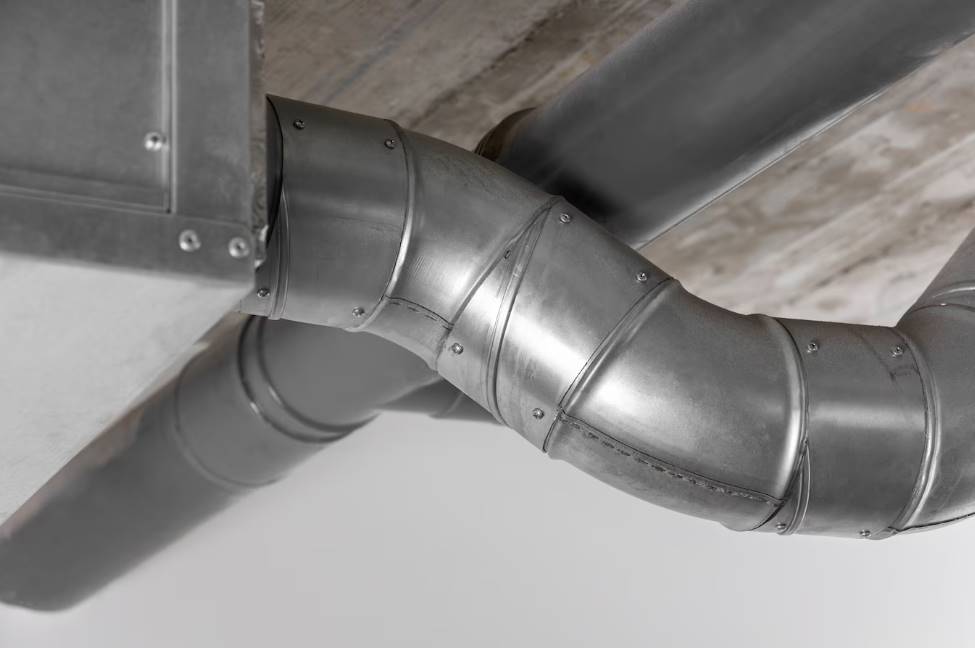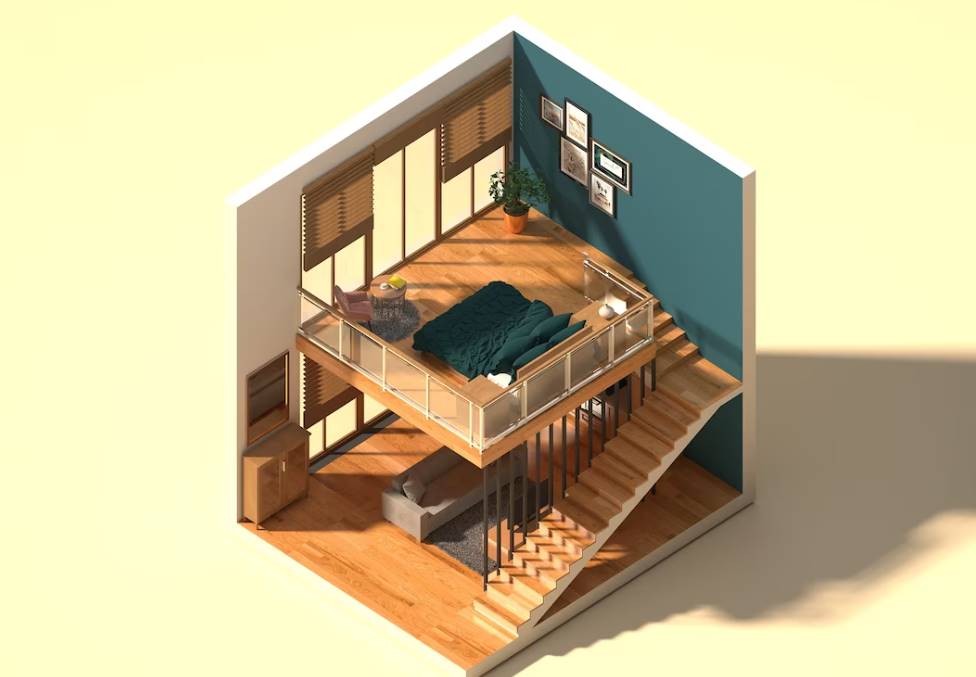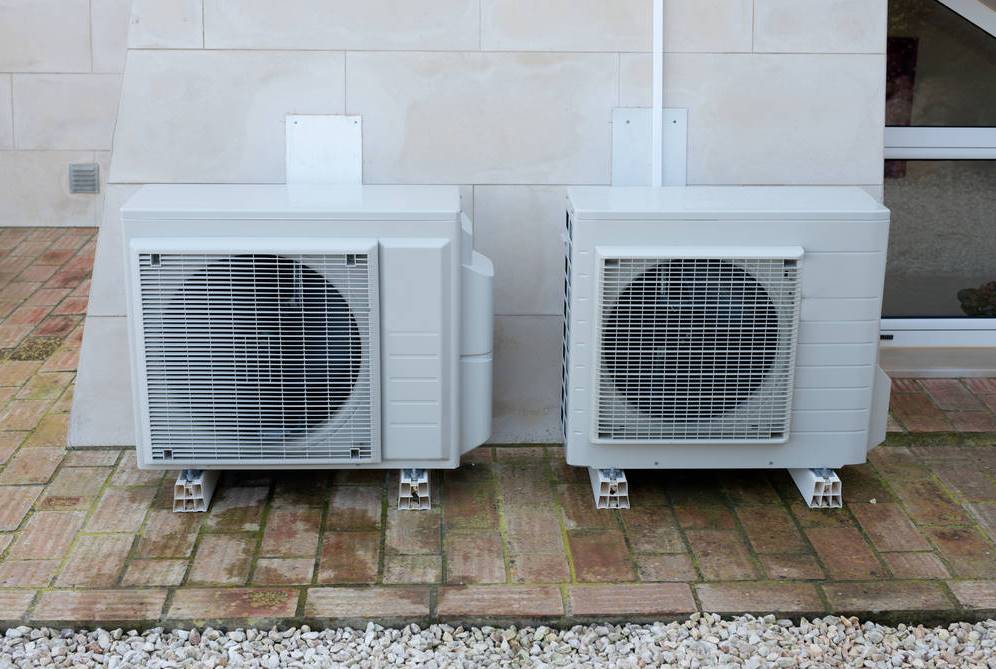You want to feel at ease wherever you are in your house, whether in the bedroom, bathroom, kitchen, or living room. However, maintaining an ideal temperature in every space can be challenging.
Installing an HVAC zoning system is an excellent approach to managing home temperature when starting from scratch or replacing HVAC equipment. You'll be at ease when you factor in savings on heating and cooling. What is HVAC zoning, and is it right for your home? is discussed here.
What Is an HVAC Zoning System?
What, then, is the definition of HVAC systems? If you have a central heating and cooling system, all your rooms will be heated or cooled at the same rate. An HVAC zoning system disrupts this regularity by assigning individual thermostats to each "zone" you designate.
The homeowner can create up to four separate thermostatic zones. Each area's temperature may be readily controlled by setting a thermostat.
How Do Hvac Zoning Systems Work?
Creating zones is the initial stage in installing a domestic HVAC zoning system. After your home has been partitioned into zones (we'll review these and how to make them in further detail below), a thermostat will be set up in each section. All of the thermostats in your house are linked to a single control panel, but they each regulate a different area.
After that, dampers, valves, or plates will be fitted into your home's ductwork to control the airflow throughout different zones. Dampers are placed at the air outlet of each zone in a ductless cooling system, eliminating the need for a central air conditioning unit. There are open/closed dampers. Dampers will open to let fresh air into a room or building when needed. The dampers will automatically close once the set temperature is reached in a given area. If several dampers in a single zone need to be adjusted simultaneously, you can set them up to do so with a single command.
Thermostat adjustments in one area of the house trigger a response from the master control unit. If you turn up the thermostat, all your heaters will start cranking out the heat. Your air conditioner will be activated automatically when the thermostat is set lower. After turning on the heating or cooling device, the central control panel opens all the ducts in the zone that need a temperature adjustment but closes the others. The temperature in each section can be set independently.
When Does Ac Zoning Make Sense?
You should now be able to decide whether or not a zoned HVAC system is a good fit for your home.
If Your House Has More Than One Floor,
Since hot air rises, the upper floors of a two-story house may be considerably warmer than the lower ones. The only thing worse than getting out of bed on a hot night is getting up on a cold one. A zoned system lets you set the temperature on each floor of your multi-story home, saving you the effort of keeping a consistent temperature.
If Your Home Has High Ceilings, You May Want To Consider
In a home with high ceilings, the warm air has nowhere to go but up, leaving the lower levels cold. This can be fixed with a zoned HVAC system by routinely raising the room temperature to increase heat flow. If you have high ceilings in a room, you can create a thermal microclimate without overheating the rest of the house.
If There Are Large Panes Of Glass
A room's temperature may be greatly affected by the amount of sunlight entering it. Picture, bay, and floor-to-ceiling windows let more light in, raising the room's warmth. Creating a separate zone for a room with several windows allows you to adjust the temperature without affecting the rest of the house.
If The Temperature In Each Room Of Your House Constantly Varies
Even if none of these describe your situation, a zoned HVAC system might be considered if you see significant temperature differences across rooms. Many factors could cause inconsistent temperatures across your home, and a single thermostat won't help. Installing a zoned HVAC system lets you adjust room temperatures to keep the house comfortable.
The Advantages of HVAC Zoning System
There are many advantages to installing HVAC zoning systems beyond only the ability to set individual temperature zones.
Increased Energy Savings
With a zoning system, you will save money on heating or cooling rooms that are seldom utilised. This won't just make things more productive but also help you save money on your monthly energy costs.
Durability Of An Hvac System
Since your HVAC equipment won't have to work as hard to maintain a uniform temperature throughout the house, they'll last longer. A zoned HVAC system has a longer lifespan because it doesn't have to heat and cool the entire building.
More Efficient Use Of Energy
If you have a single thermostat for the entire house and one area is too warm or cold, you'll have to adjust the temperature everywhere. A higher energy cost is possible since heating and cooling an entire house uses more resources (even if you have high SEER goods).
You may control the temperature of a room or floor with a zoned HVAC system. The technology will only heat or cool the designated area, reducing energy consumption and costs.
Added Convenience And Security At Home
Having more than one thermostat allows for more temperature and comfort regulation. Thanks to an HVAC zoning system that regulates the temperature independently in each zone, you no longer have to settle for a single, uncomfortable temperature across your home. In a multi-person dwelling, zoned HVAC allows each occupant to independently regulate the temperature of their sleeping quarters and common areas.
Improved Air Quality
Particles such as lint, dust, pollen, and pet dander can re-enter your home even after passing through a filtered HVAC system. Dampers in a zoned HVAC system ensure air is directed solely to the desired areas. When the HVAC system is activated, this helps prevent the recirculation of dust and other particles that evaded the filtration system.
Correct The Most Frequent Issues
If you've read this far, you may think, "It sounds like a convenient technology. But do I need it?
The correct answer is that you do. Most homes have trouble spots where the temperature rises or falls unexpectedly due to poor placement, insulation, or planning.
The placement of a room is a major factor in whether or not it becomes a problem area. Basements and attics are typical problem areas because of the extreme temperatures they can experience. Laundry rooms and foyers, often located close to the front door or the garage, may also need help maintaining a comfortable temperature.
Choices made during construction can also affect how well a room retains heat or cold. High ceilings (cathedral ceilings) and many windows (sunrooms, lofts, or living rooms with wide bay windows) can be problematic design features.
The appliances in a given area also have a role in maintaining the desired temperature. Heat-producing appliances like stoves and fireplaces will throw off a normal HVAC system. This issue can be remedied by installing a zoned system that allows for independent control of the kitchen and living room. For the sake of argument, let's say that you intend to leave the oven on for several hours. In that instance, you can reduce the oven's temperature without sacrificing comfort in the kitchen.
Is there at least one of these you've experienced in your home? Then, an HVAC zoning system would do more than make your life easier and more comfortable. Taking care of these issues will also help you better manage your energy consumption and utility bills.
Higher Levels Of Relaxation
An HVAC zoning system may do wonders for your temperature comfort, whether you want a cooler home gym or a warmer place to watch TV. The temperature in each zone can be set individually.
Ask yourself if zoning your air conditioner is the best option for you.
Although a zoned HVAC system has numerous advantages, there are better choices for some homes. Zoning your heating and cooling system is more complicated and, therefore, more expensive to build than a standard HVAC system. The erection of dampers in each zone and the use of several thermostats enhance the amount of electrical work and cost associated with this system. In addition, the likelihood of a breakdown increases as the number of parts in an HVAC system grows, leading to higher repair bills.
A zoned HVAC system isn't necessary for you if you don't experience significant temperature variation within your home and don't have any of the qualities above (such as large windows). Without zoning, the following is how conventional HVAC units function:
Central Air Conditioning
A central AC can cool the house without multiple units. Central air conditioning is ideal for warmer months for folks who like a consistent house temperature. It is common practice to pair central air conditioning with a furnace or heat pump for year-round comfort.
Heat Pumps
You'll need an air handler or furnace to complement a home heat pump's heating and cooling capabilities. In mild-to-hot climates, consider adding a heat pump. This air conditioning and heating unit works by circulating heated or cooled air around your home via a network of ducts.
Systems Without Ducts
Air conditioning without ducts or zones is called ductless. Instead, they focus on heating or cooling one space at a time. Individual rooms with ductless systems can be conditioned independently of the rest of the house.
Maintaining Your HVAC Zoning System to Last Longer
Your home's furnace and air conditioner can be more effective with zoned heating and cooling. They save energy since they aren't required to work as hard to distribute air to every room in the house.
Without zoning, the HVAC system will always operate at full capacity to supply air to every room in the house. When localised ventilation needs are reduced, two-stage systems can operate at a reduced capacity.
This implies that you can get more use out of your air conditioning unit. You can extend the life of your current system by adding zoning technology, and it works just as well for brand-new installations.
The typical payback period for a zoned HVAC system is between two and four years. This one-time expenditure will help the environment, save money, and make your life easier for the next fifteen to twenty years.
Conclusion
By installing separate thermostats in each zone, a properly zoned HVAC system makes it easy to regulate the temperature throughout the house. Up to four independent temperature zones can be set up by the homeowner. The first step is to divide the house into zones and install thermostats in each one. There is only one central control panel, but many individual thermostats. Ductwork in a house can be outfitted with dampers, valves, or plates to regulate airflow to certain rooms or areas.
Homes with numerous stories, high ceilings, and huge windows that let in a lot of natural light benefit greatly from AC zoning. Heating, ventilation, and air conditioning (HVAC) systems that are zoned can keep individual rooms at comfortable temperatures without heating the entire house. Zoned heating, ventilation, and air conditioning (HVAC) systems can also be considered if there are large temperature changes between different rooms.
Energy savings, HVAC equipment longevity, energy efficiency, convenience, security, and indoor air quality are just some of the benefits of having a zoning system. In a home with more than one thermostat, everyone can set their own prefered temperature for their bedroom and the common spaces, eliminating the need for an uncomfortable uniform setting. Furthermore, dust and other particles that have evaded the filtration system are not recirculated thanks to zoned HVAC systems.
In conclusion, HVAC zoning is an excellent method for maintaining a comfortable temperature throughout a home's numerous rooms. Homeowners can make well-informed judgements about their heating and cooling needs after giving due consideration to the system's advantages and benefits.
Homes that experience significant temperature swings on a regular basis as a result of improper location, insulation, or planning can benefit from installing an HVAC zoning system. Temperature retention can be affected by a building's location, insulation, and design. The demand for space-heating appliances can be reduced thanks to zoning systems that give the kitchen and living room their own thermostats.
Temperature comfort can be increased with the use of an HVAC zoning system. However, it requires more electrical work and more repair expenses than a regular HVAC system, making it more expensive to install. Homes without significant temperature change or wide windows do not require zoned HVAC systems.
Central air conditioners, heat pumps, and ductless HVAC systems are examples of traditional HVAC units that do not require zoning in order to function. Heating and cooling systems that are zoned to provide air to individual rooms are more efficient and use less power overall. If you want your HVAC system to last for the next 15–20 years, zoning technology is a must. A zoned HVAC system can help the environment, save money, and make life easier, and the payback time is typically between two and four years.
Content Summary
- It might be difficult to keep the temperature just right in every room of the house.
- Zoned HVAC systems allow for more precise control of indoor temperatures.
- Using HVAC zoning, you can set the temperature in different "zones" of your home with separate thermostats.
- A single house can have as many as four independent climate zones.
- The ductwork is outfitted with dampers, valves, or plates to regulate airflow to specific rooms or areas.
- In ductless cooling systems, the airflow is controlled by dampers that open and close.
- Changing the temperature in one zone causes a chain reaction in the central control.
- Multi-story houses benefit greatly from zoned HVAC systems.
- Zoned HVAC systems can help with heat dispersion in spaces with high ceilings.
- Zoning can be useful in regulating the temperature of a room with several windows.
- Temperatures in different rooms can be kept uniform with the use of zoned systems.
- Costs for both heating and cooling can be lowered thanks to zoning systems.
- Because it is not working as hard, HVAC equipment has a longer lifespan when zoned.
- Zoning helps save money by decreasing the need for continuous power.
- Zoning allows residents to regulate their own privacy and convenience.
- By directing airflow in a specific direction, indoor air quality can be improved.
- Zoning is a useful tool for addressing temperature issues in certain locations.
- Conditions in a room might change depending on factors like its location, insulation, and layout.
- Home appliances have an effect on the room's temperature.
- Zoning is a cost-effective way to control utility usage and costs.
- Temperature-wise ease and relaxation are both improved by zoning.
- The setup costs and complexity of a zoning system are both higher.
- Repair costs for zoning systems may increase due to their complexity.
- Consistent indoor temperatures are made possible by central air conditioning.
- Heat pumps are a useful addition to both heating and cooling systems.
- One room at a time is conditioned via ductless systems.
- Zoning improves the efficiency of heating and cooling systems.
- Systems that are divided into distinct zones use less power and last longer.
- Existing infrastructure and brand-new setups alike can utilise zoning systems.
- In most cases, a zoned HVAC system will pay for itself in two to four years.
Frequently Asked Questions About HVAC Systems
HVAC zoning is a system that divides your home into different zones, each with its own thermostat. Dampers or valves in the ductwork control airflow to these zones. When a zone's thermostat is adjusted, the system opens or closes dampers to regulate temperature independently in each area.
Yes, HVAC zoning can still be beneficial for single-story homes. While it's often used in multi-story homes to address temperature variations between floors, it can also help manage temperature differences between rooms with varying heat gain or loss due to factors like large windows or room placement.
HVAC zoning offers several advantages, including increased energy savings by heating or cooling only the areas in use, extended equipment lifespan due to reduced workload, improved air quality through directed airflow, and the ability to customise comfort in different zones of your home.
Unlike traditional systems with a single thermostat for the entire house, HVAC zoning allows for individualised temperature control in different zones. This results in more efficient energy use and enhanced comfort, especially in homes with varying temperature needs.
The payback period for an HVAC zoning system can vary depending on factors like your home's size and energy usage. However, it often ranges from 2 to 4 years. Over time, the energy savings and increased equipment lifespan can offset the initial installation costs.



